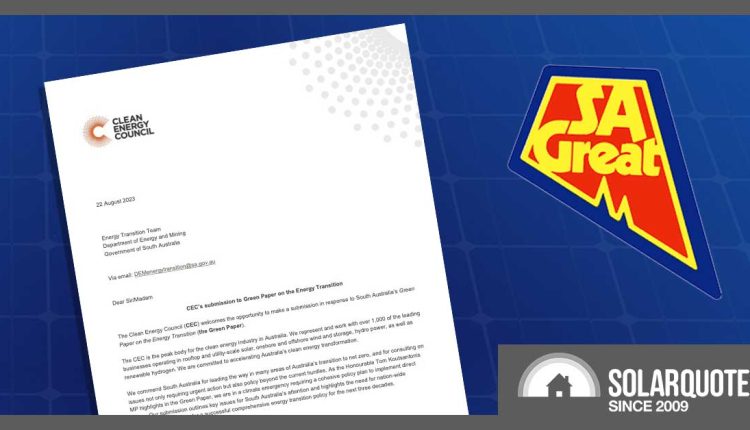CEC Pushes To Add Home Batteries To Solar Rebate Scheme
The Clean Energy Council has responded to South Australia’s Green Paper on the Energy Transition, calling for a home battery rebate and better national technical standards for initiatives such as dynamic solar exports.
The CEC’s submission (pdf) to the Green Paper noted the climate emergency is now upon us, which requires:
“a cohesive policy plan to implement direct action.”
What stands out for our readers is the CEC using the submission to advocate for home battery installations to be included in the national Small-scale Renewable Energy Scheme (SRES).
Home Batteries: A New Addition To SRES?
For those unfamiliar with the term, the SRES (aka the ‘solar rebate’ ) is an initiative from the Australian government to encourage the installation of renewable energy systems. Under this scheme, homeowners, small businesses and community groups receive Small-scale Technology Certificates (STCs) when they install eligible systems.
These STCs can be traded or sold. The certificates are usually signed over to the solar installation company, which provides their value less administrative fees as an up-front discount on the cost of a solar power system. Prices you see advertised for systems will already include STC value.
The CEC’s submission specifically recommends:
“adding battery installations to the Clean Energy Regulator’s Small-scale Renewable Energy Scheme (SRES),”
This would reduce the cost of solar batteries for homeowners.
A South Australian Storage Target
The submission urges the South Australian Government to establish a battery storage target. It suggests leveraging the SA Residential Energy Efficiency Scheme to encourage households and small businesses to adopt energy storage solutions. The recommendation emphasises that a storage target aligns with the Australian Energy Market Operator’s (AEMO’s) Step Change scenario.
Empowering Rooftop Solar Owners
The CEC goes into specifics about supporting home solar owners. They suggest improvements such as:
- Clarifying governance around rooftop solar and batteries.
- Taking steps to avoid networks constraining solar energy exports.
- Implementing better end-of-life management for solar panels.
Praise For Flexible Exports
Noting the success of South Australia Power Networks’ (SAPN’s) past work on flexible (dynamic) exports, the CEC submission encouraged:
“Advocacy and engagement with regulators on the use of dynamic operating envelopes as a better alternative to zero-export limitations.”
A Call for National Solar Technical Standards
The Clean Energy Council also urged the South Australian government to support the establishment of a “National CER Technical Standards Body.”
“The current status of CER technical standards regulation is not satisfactory and is neither serving the industry nor consumers.”
A national body would help standardise technical requirements across the board, benefiting both the industry and consumers states the CEC. South Australia’s efforts would, the submission said, combat the growing inconsistency in solar technical standards at the national level.



Comments are closed.